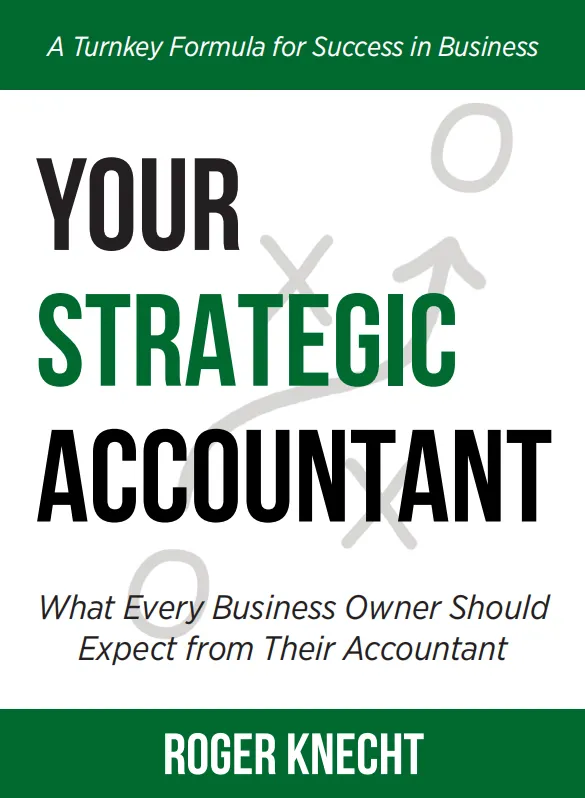Small business owners and professionals are discovering that outsourcing your bookkeeping saves payroll, overhead cost and it’s a giant step in freeing up valuable time. For many owners, just the effort of hiring, training and managing a bookkeeper can take as much as 5 hours a week and if you’re doing the books yourself the numbers are even worse. As a business owner your time is best spent doing what you do well — working with customers.
Maintaining Control in Outsourced Bookkeeping
There is a common misconception that an owner will lose control if they outsource the bookkeeping. In a properly designed system a local accountant only takes over the process of tracking transactions such as sales, accounts payable and balancing the books, but only the business owner makes management decisions. Using online bill paying, the owner is the final word on who gets paid and when.
If you have great books or pretty sloppy books for the most part your customers never know. A generally accepted rule in business is to focus resources on tasks that add value to the customer relationship. Time spent on bookkeeping problems add little or no value to your customer relationship. Yet, books that are inaccurate or do not reflect the true health of your business provide no clue to managing your business.
Being clueless at any level about where you are making money or who is a good customer is not being in control. Cash flow is never a problem in business, it is a symptom of other problems, an outsourced bookkeeper can provide the answers and you will end up with more control of your business.
Professional Bookkeeper Certification
The Professional Bookkeeper™ certification by the Universal Accounting Center represents proficiency in applying accounting practices tailored for small to mid-sized businesses. It highlights the accountant’s dedication to their craft and their capability to deliver top-notch services to employers or clients. Whether you aspire to specialize in bookkeeping for small to mid-sized businesses or pursue credentials for career progression, consider enrolling in the Professional Bookkeeper Certification Program.
This program caters to the growing need for skilled professionals in small business bookkeeping and accounting, through online bookkeeping and accounting classes offering a pathway to meet industry demands and excel in your field.
Solving Hiring Challenges through Outsourcing
By outsourcing you solve the problem of hiring. Good bookkeepers with knowledge of accounting software are hard to hire, expensive to keep and in some cases difficult to manage. Your accountant controls the hiring process and your work is shared with a team so that if one person leaves you will not suffer an interruption of service. Because of new technology advances you now have the same alternative as Fortune 500 firms. Thirty five percent of America’s largest businesses outsource their bookkeeping.
Leveraging Technology for Efficient Bookkeeping
New technology makes this possible. The acceptance of the ASP (application service provider) technology allows the outsourced bookkeeper to ‘reach’ into your network and do the accounting tasks from their office. The owner uses the ASP to look at their books at any time from any connected laptop or computer. This allows the business owner to review in real time the progress of their operation at home or on the road. Some owners log onto their ASP and review the business health and progress daily rather than waiting a month for financials.
In most cases outsourcing will save you money as well. The most common pricing structure for outsourced bookkeeping is to charge 10% to 20% less than the current bookkeepers salary. Not only do you save on salary but also you have no overhead, management, hiring or training cost when using an outsourced service. The overall annual savings can be up to 50%.
The Role of Leverage in Outsourcing Success
The reason a trained business accountant is able to take over an existing process and deliver it back more cheaply is due to leverage, the most common of which is economy of scale. If the supplier does not have to significantly alter the way its current business function is set up and standardization has occurred, the opportunity for both supplier and buyer to benefit is great.
Technological advances have taken the cycle times in a business from several months to several hours, and our competitors no longer have geological restrictions or the hindrance of large bureaucracies. To remain competitive, it is imperative that a company rethink its strategies, take a hard look at where they are creating value for their customers, then focus on those processes. The most successful businesses of today have gone to outsourcing and now have time and money to spend on differentiating themselves in the marketplace.
The most common reasons management chooses to outsource certain business processes are
- to reduce operating costs
- improve company focus, improve quality
- free up capital
- increase capabilities not otherwise available and to reduce cycle time.
If a buyer cannot receive an improved economic position as a result, then it should not outsource.
Tailored Solutions for Business Optimization
Universal Accounting Centre offers tailored business running solutions and business accelerators, empowering individuals with tools and strategies to optimize operations and accelerate growth in their newly formed businesses.
Conclusion
The decision to outsource can be an easy one. If there is a company or individual that can do it better, faster, and cheaper than you, then you do not want to keep the work in house. Outsourcing has become an accepted business tool worldwide. By turning over business processes to companies that consider these tasks their core competency, organizations now have the ability to become more profitable, more efficient and far more competitive by focusing on the tasks that are most important.










